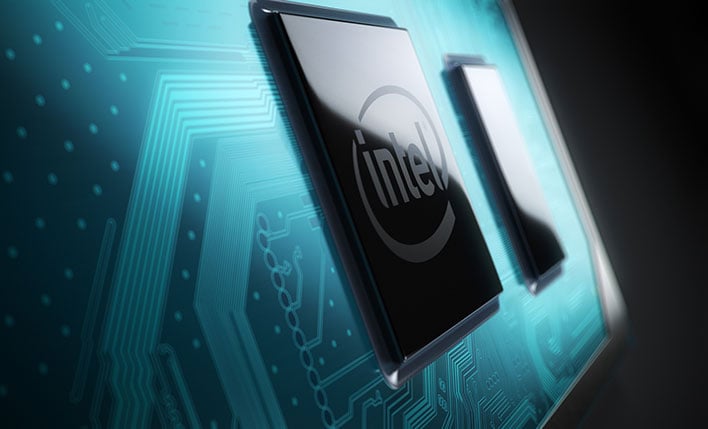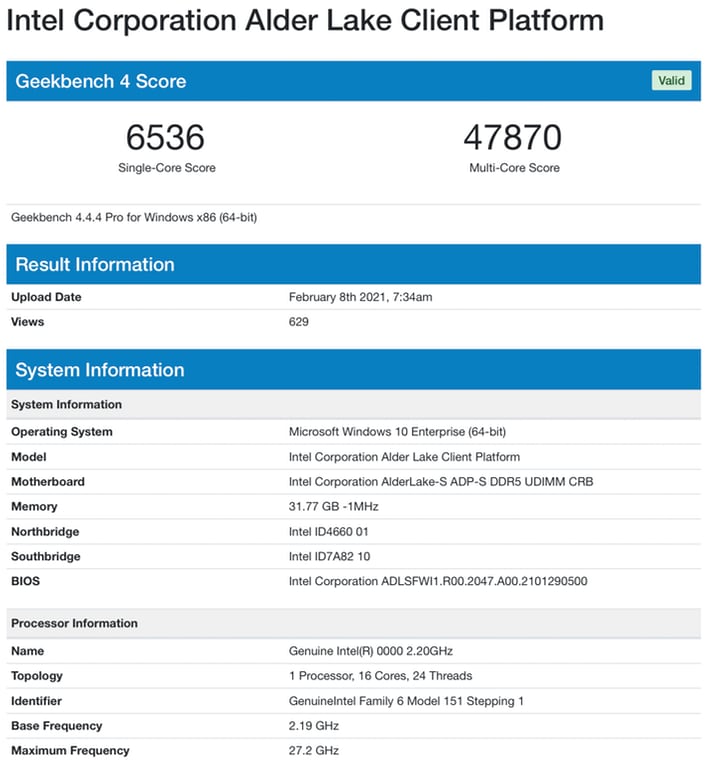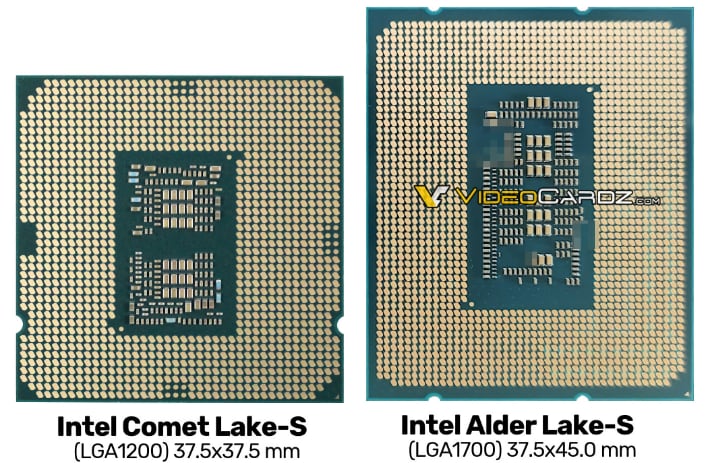Intel Alder Lake-S CPU Benchmark Leaks With 16 Cores, 24 Threads And Next-Gen DDR5 Memory

The last Alder Lake-P processor that we saw featured 14 cores and 20 threads, while the latest processor is rocking 16 cores and 24 threads. We know that Intel is using a hybrid CPU architecture for Alder Lake, so that would explain the discrepancy from what we're using to seeing with modern processors. Typically, we see Intel processors without HyperThreading feature the same number of threads as they do cores (i.e., a Celeron G5900 has 2 cores and 2 threads). HyperThreading-enabled processors have twice the number of threads as they do cores, so the Core i9-11700K has 8 cores and 16 threads.

Intel has yet to give us more detailed information about how this hybrid CPU architecture will work, but we're intrigued at this point. It's beginning to sound like it will be similar in concept to Arm's big.LITTLE design philosophy. This new Alder Lake-P engineering sample features a base clock of 2.2GHz, but Geekbench is reporting an erroneous (and quite comical) 27.2GHz for the turbo clock. The last Alder Lake-P processor that we saw featured a turbo clock of 4.7GHz.
Perhaps even more interesting, however, is that this system features 32GB of DDR5 memory, which is a new memory standard offering higher clock speeds and bandwidth. DDR5 will be supported by Intel with Alder Lake systems and reportedly by AMD with its forthcoming Zen 4 family.

Getting down to brass tacks, we come to actual performance, which is presented here via a Geekbench 4 benchmark result. This unidentified Alder Lake-S processor is pulling down a single-core score of 6,536, while its multi-core score is pegged at 47,870. That performance makes its competitive with current Ryzen 5000 desktop processors. However, given that these are likely early engineering samples, there's still room for improvement.
Alder Lake-S will do away with the still relatively new LGA-1200 socket (first introduced with Comet Lake-S in 2020) and move to the LGA-1700 socket. The new processor family will also support the PCIe 5.0 interface (in addition to the aforementioned DDR5) and will be built on the new 10nm SuperFin process node. This will mark the first time that Intel has ever ventured past 14nm for its desktop processors.
(Alder Lake-S LGA-1700 pinout image courtesy VideoCardz)

